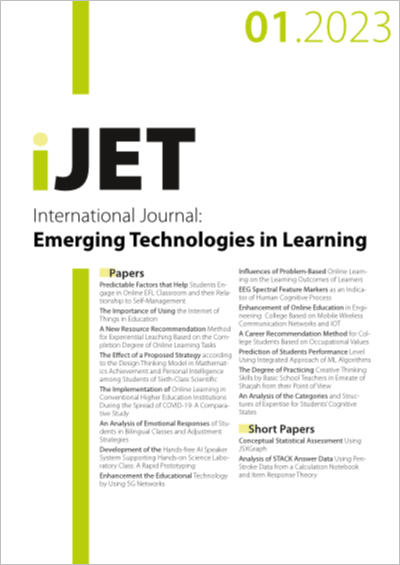Predictable Factors that Help Students Engage in Online EFL Classroom and their Relationship to Self-Management
DOI:
https://doi.org/10.3991/ijet.v18i01.35257Keywords:
EFL, interaction, online learning, self-confidence, self-managementAbstract
Online teaching has become a decisive factor to keep growing in higher education settings. The present analytical correlational study examined the predictable factors that would help EFL Jordanian students engage in online learning in English courses after COVID-19 pandemic. To achieve the objective of the study, a validated and a reliable survey was administered to investigate the students’ perceptions toward various factors that would affect their success and engagement in online EFL classroom. Additionally, the relationship among some factors was investigated. Fifty-nine EFL students in an English Language Skills course in a technical university college in Jordan were randomly selected to respond to a questionnaire which was adapted from Bernard [7]. Data of the study were analyzed using the descriptive statistics (means and standard deviations) and Person Correlation Coefficient. Findings of the study confirmed that relationship among some factors has uncovered the importance of having basic skills in building other skills. A positive relationship was also found between the factors that help students engage in online learning and self- management. Findings of the study would be helpful for teachers, instructors, and course designers when designing and delivering online courses as well as policy makers
Downloads
Published
How to Cite
Issue
Section
License
Copyright (c) 2022 Dr. Abdelhameed Al Awabdeh, Abeer Albashtawi

This work is licensed under a Creative Commons Attribution 4.0 International License.



